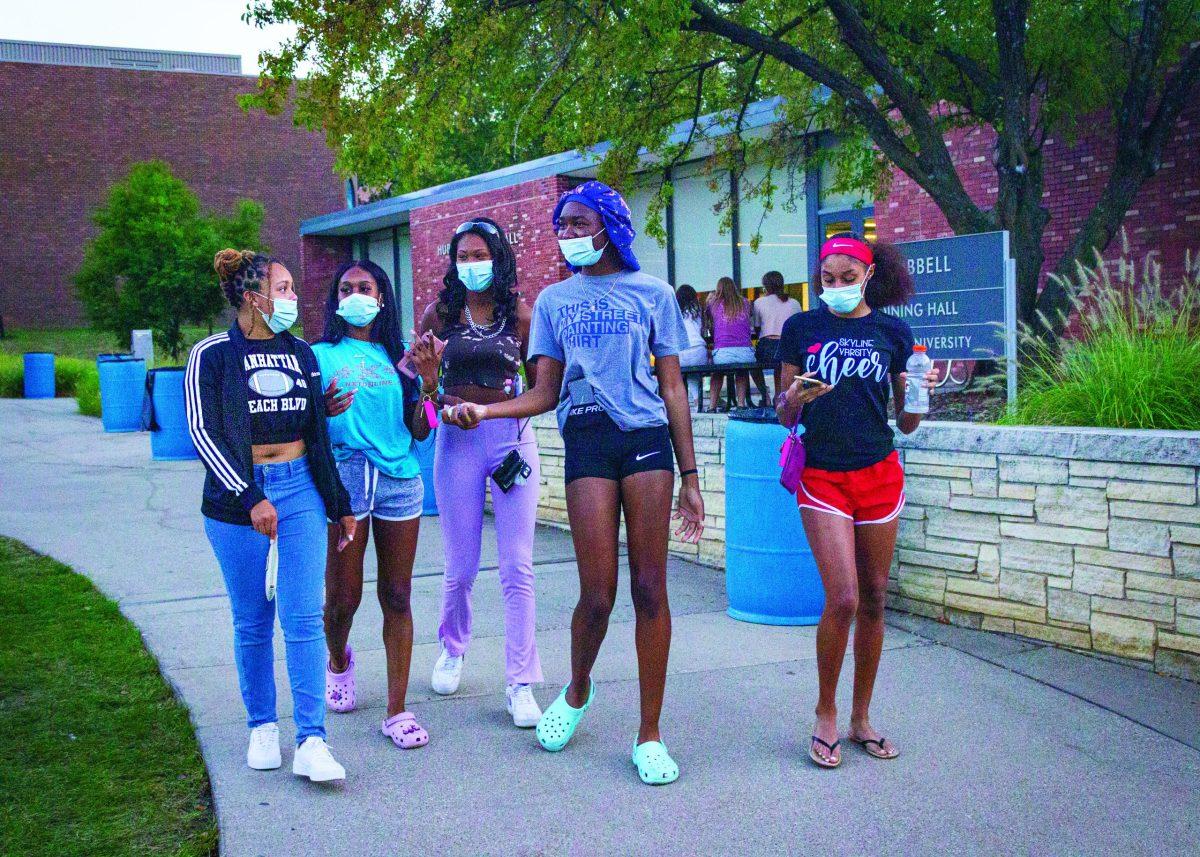As students return to Drake for a high-stakes semester, the many changes made in an attempt to “pandemic-proof” campus will be put to the test, the results of which will remain privileged information.
On Aug. 20, the university announced via email that it would not disclose the overall rate of COVID-19 infections on campus as the semester progresses.
“Drake will not share or publish COVID-19 medical information in order to protect the privacy of the individuals affected,” Executive Director of Public Safety Scott Law said. “Those who need to know about individual positive cases will be notified during the contact tracing process.”
The Emergency Operations Center coordinates the university’s response to COVID-19. It was activated on March 13 to address issues surrounding the pandemic.
“The EOC is made up of a cross-section of University leaders (including faculty and staff) who are working together to manage Drake’s response to the pandemic,” Law said. “Chris Nickell, Director of Environmental Health and Safety, and I serve as co-chairs of the EOC.”
According to Law, the EOC meets every weekday morning to discuss pandemic issues as they arise, including monitoring several confidential data points that impact the university’s response.
Campus infection rates are an easily quantifiable measure of pandemic response success, causing many to wonder whom this measure intends to protect.
“Practically every other campus in America is regularly releasing its COVID numbers. Without this data, how on Earth is the community supposed to make decisions regarding their health, their safety, their very lives?” Connor Sullivan, a senior theater major, said. “When foreign countries have suppressed data about this pandemic, America has been quick to decry them as fascist states. Why then, is it acceptable for Drake University to disregard the health and safety of the community in such an egregious way?”
Law says there is positive intent behind the nondisclosure.
“Drake will not share or publish COVID-19 medical information in order to protect the privacy of the individuals affected,” Law said. “Raw case numbers can cause false confidence or undue worry. Context matters greatly, and particularly so in ever-changing circumstances like this pandemic.”
Sullivan doubts the decision will keep the infection numbers under wraps.
“It is laughable for the university to believe that they can completely conceal the fact that COVID-19 is present on campus because the students will simply start reporting which of their friends has tested positive,” Sullivan said. “In fact, they already have. Drake should save us the speculation and unofficial tallies, and just start releasing the numbers.”
The EOC has established numerous procedural changes, outlined in the Drake Together Compact to limit the potential for COVID-19 spread on campus. Students intending to participate in on-campus classes were required to sign off on their commitment to a series of behavioral mandates for the upcoming semester.
Regardless of the university’s commitment, Sullivan believes the changes will do little to stop the spread of COVID-19.
“Drake University has a feeble testing plan that is destined for failure,” Sullivan said. “There is no regular, proactive testing. Students living in the dorms were tested once upon arrival. Following this, students are only tested when they start showing symptoms or have been in close contact with a confirmed positive case. This is laughable since everyone knows by now about the prevalence of asymptomatic carriers of COVID-19. Even for those who do develop symptoms, it can take weeks, weeks during which the virus could spread like an inferno.”
He believes mandatory testing is the key to pandemic-proofing campus.
“In order for in-person classes to succeed, we need biweekly, proactive, and mandatory COVID-19 testing for all students, faculty, and staff,” Sullivan said.
Ultimately, the administration believes the efficacy of these changes will depend heavily on community compliance.
“If we are going to get through the fall semester, it will come down to our decisions and our actions. Simply put, we need to be Drake Together,” Dean of Students Jerry Parker said in an email. “I want to be crystal clear: we are serious and we will not hesitate to take the necessary actions to mitigate the potential spread of COVID-19, jeopardizing the health and safety of others.”
University Provost Sue Mattison echoes Parker’s commitment to enforcing these high-stakes sanctions.
“These policies have been put in place to protect people’s health, people’s lives, and people’s jobs,” Mattison said. “The safety and health of our students, faculty, staff, and community are our highest priority, and I hope that has been evident from our actions.”
For more information on the new policies enacted under COVID-19, visit drake.edu/coronavirus.







